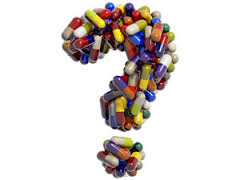Thread: THIS DIET KILLS!
-
November 18th, 2011, 12:22 PM #11
 Swaying Advice Coach
Swaying Advice Coach

- Join Date
- Dec 2010
- Location
- Eastern Washington State, USA
- Posts
- 108,141
- Post Thanks / Like

- Downloads
- 0
- Uploads
- 0
SORRY I just caught this. I actually think limiting fat is more important than nutrients overall. This may help.
In order of what I think are the most important priorities of diet:
1)Lower calories - aim for 1500-1800 cals a day, but lower is lower, going from 2500 to 2000 is still an improvement. The Oxford study found that moms who conceived girls ate hundreds fewer calories than moms who conceived boys did. PLEASE try and resist the temptation to cut back further than this.
The Low-Everything diet is meant to be a healthy alternative to some of the more restrictive swaying diets out there, that you can stay on in the long-term and give yourself the freedom to pursue other swaying tactics without worrying about destroying your health if it takes you several months to conceive. Eating too few calories will reduce your fertility (which is what we WANT for TTC pink) but if you restrict yourself too far, you'll stop ovulating. 1500-1800 calories is recommended as safe by reproductive endocrinologists as a good caloric intake for losing weight while maintaining fertility.
2)Lower blood sugar levels IN THE 2WW (if you can't stick to it all the time, make sure you at least try during the 2WW) This is important because XX fertilized eggs seem to develop better in a lower glucose environment because they are highly efficient at sucking up glucose from the fluids that surround them. http://www.eurekalert.org/pub_releas...-nrr082004.php
http://www.horsetalk.co.nz/breeding/foalsex-121.shtml
http://www.theaustralian.com.au/news...-1225936189896
It is BEST to stick to the lower blood sugar levels even when not in the 2WW if you can. This is because I strongly suspect that some mechanism probably has evolved that sends the message to your body that whenever your blood sugar is low, an XX bean has a better chance of surviving to implantation; as a consequence, you may make yourself more likely to conceive an XX to begin with.
Controlling blood sugar is something that people find very stressful and confusing so it's best to just stick to the following easy-to-achieve goals. 1) Skip breakfast 2) Eat 2-3 meals a day and don't snack 3) Avoid very large, Thanksgiving-dinner style meals with lots of protein, fats, and carbs that will take several hours to digest 4) Wait until you are actually hungry before eating again.
3)Losing weight (and this WILL help lower your blood sugar even if you eat 8 meals a day) "No matter how heavy you are, you will significantly lower your blood sugar if you lose some weight," says Cathy Nonas, MS, RD, a spokeswoman for the American Dietetic Association and a professor at Mount Sinai School of Medicine in New York City.
You do not need to go overboard on this advice, even losing as little as a few pounds can make a big difference. If you find yourself losing too much weight, especially if you were thin to begin with, STOP and eat more calories. Carbs are always better than fat/protein.
4)Lower fat - rather than striving after a number or percentage of fat, just eliminate as much of "visible" fat that you can. Fat is easier for most people to cut back on than protein and it helps reduce caloric intake, even though I suspect protein may sway "harder", so that's why it has a higher priority than protein does.
A lot of people prefer to have an actual number to shoot for, though. (Thanks to zanacal for the following info) A moderate fat restriction diet means 20 to 30 per cent of calories come from fat, while a very low fat diet means calories account for 20 per cent or less of your daily intake. Let's call 20% our minimum goal and 30% our maximum goal. If you are superheavy and have a lot to lose, or if you find yourself at a weight loss plateau, you may want to drop down to 15%.
So on a 1500 cal a day diet (rounding up a bit just for ease):
15% fat would equal 200 calories from fat a day, 25 grams of fat
20% fat would equal 300 calories from fat a day, 35 grams of fat
30% fat would equal 450 cals per day of fat, 50 g of fat
On an 1800 calorie diet
15% fat - 270 cals, 30 g
20% - 360 cals, 40 g
30% - 540 cals, 60 g
There is NO need to count the tiny smidgeons of fat present in fruits and vegetables. Don't even bother. If strawberries have 1 g of fat, don't even include that in your day's total. (exception would be avocado which you should not be eating anyway.)
5)Lower protein - aim for 40-50 grams a day, but lower is lower - if you can't get that low, don't panic. If you were eating 120 and you're now eating 60, that's STILL lower. Protein can help with keeping blood sugar low and many also find that it helps them lose weight.
Some people have been having trouble getting enough calories without exceeding their protein limits for the day. (partly because pasta is very high in protein.) You can eat lower protein foods of course and that is my preference, but if you find yourself in this boat, it's ok to ~slightly~ relax your protein limit to 50 g, which seems a bit more doable. Also, there is no need to count the tiny amounts of protein in things like fruits and vegetables. If something has 1 gram of protein, no worries. Don't even bother counting it because you'll send yourself to the looney bin via the Testosterone Train that way trying to measure every bite you put in your mouth. As long as you're eating 1500-1800 cals a day, these small amounts of protein won't amount to anything.
Please note, 40-50 g of protein a day is perfect for health. It is the amount recommended by most reputable sources as the proper protein intake for adult women. We do not need massive quantities of protein for health. http://www.webmd.com/food-recipes/protein
6)Lower sodium - Aim for 700-1000 mg per day. This is one thing on which both the Oxford study and the French Gender Diet agree. However, this is SO HARD for people to stick to that I seriously doubt all the girls who have ever been born on the face of the planet were to moms eating very little sodium, so if you cheat on this one now and then, don't cancel your sway attempt, it will probably be just fine.
If you are of sub-Saharan African descent (Black), you should stick to a lower sodium intake for your own health. You almost certainly carry a gene that makes your body retain higher levels of sodium than people of other ethnicities.
7)Only after ALL those other things, come the lower nutrients. Eat fruits and veggies if it helps you get through the day. A huge plate of veggies is better for pink than a steak and a platter of fries.
8)IF you have done all these other things and then want to encorporate aspects of other diets, you may, but only if it doesn't screw up the fundamental principles of the Low-Everything Diet. For example, the milk in the French Gender Diet has a lot of calories, sodium, nutrients, and protein, and fat (if you don't use skim products - which you SHOULD). So if you want to drink milk as a part of your diet, feel free, but don't go overboard with it and always choose skim dairy.!!! Questions?? Check out the NEW and improved Complete Index !!!
Check out the NEW and improved Complete Index !!!
If you appreciate my help with your sway plan, please consider a donation:
https://www.paypal.com/donate?hosted_button_id=C92U9TVWTRTDQ




 Reply With Quote
Reply With Quote









So happy for you Treens, congratulations Sent from my SM-A225F using Tapatalk
Healthy baby girl :)